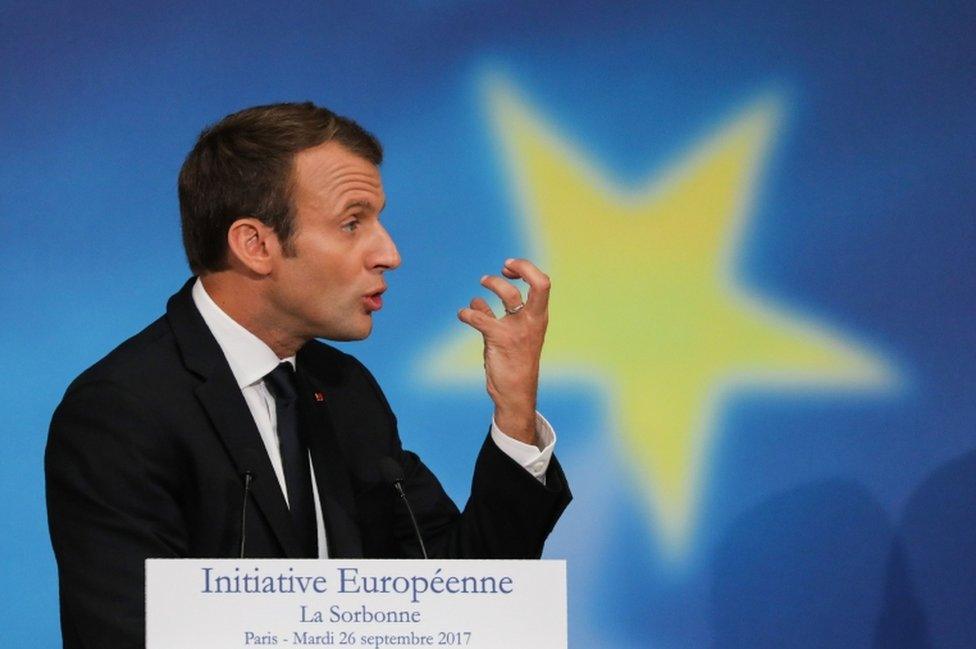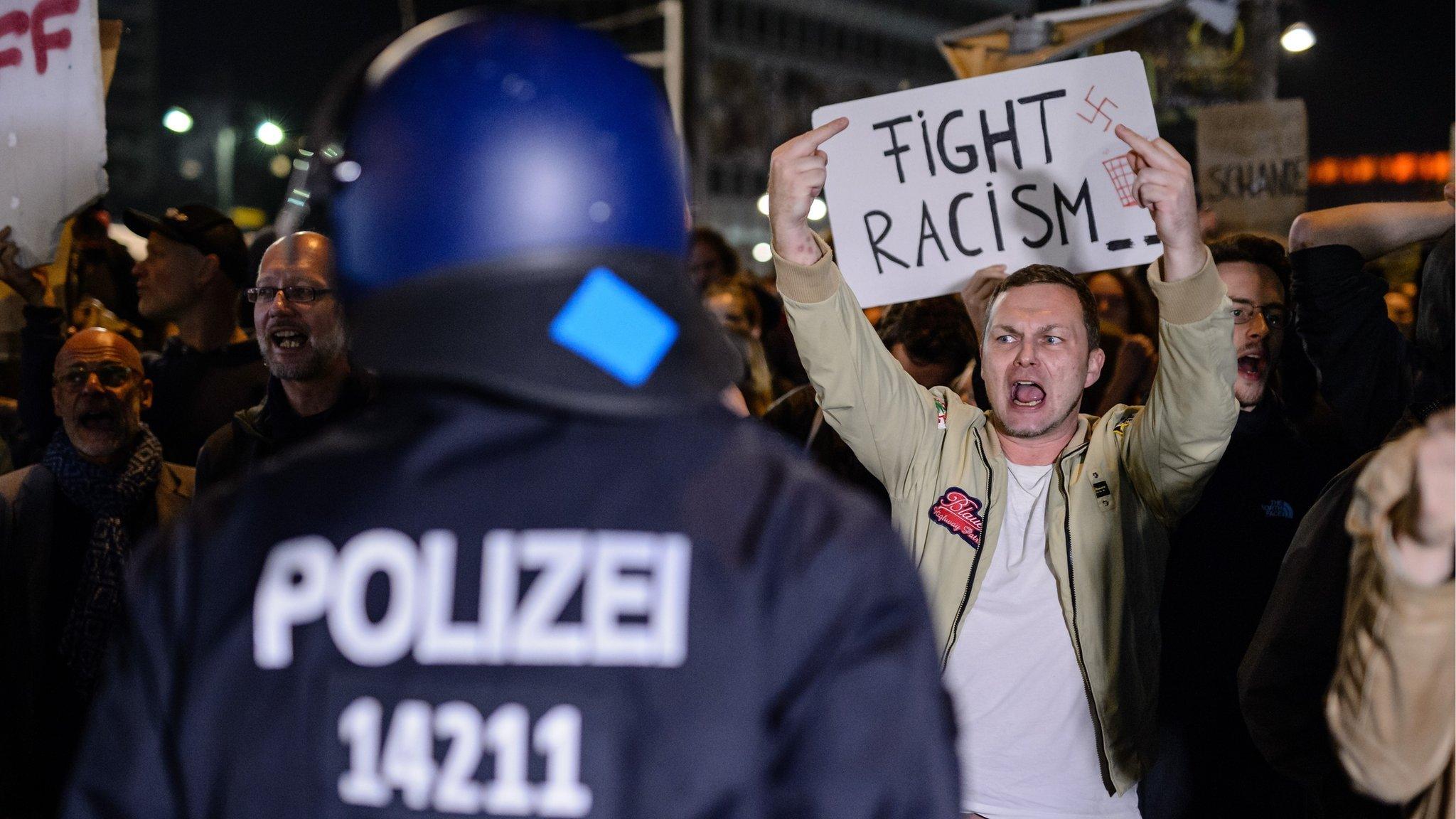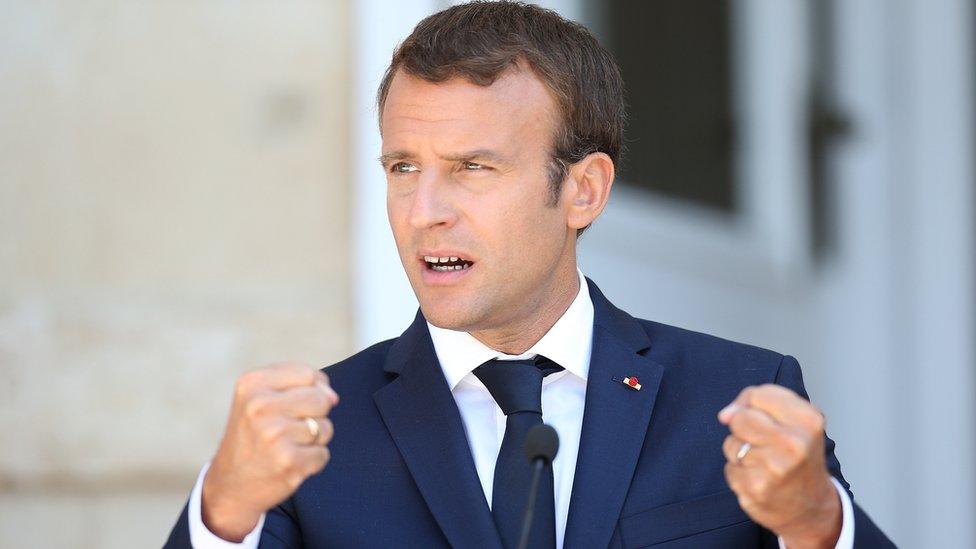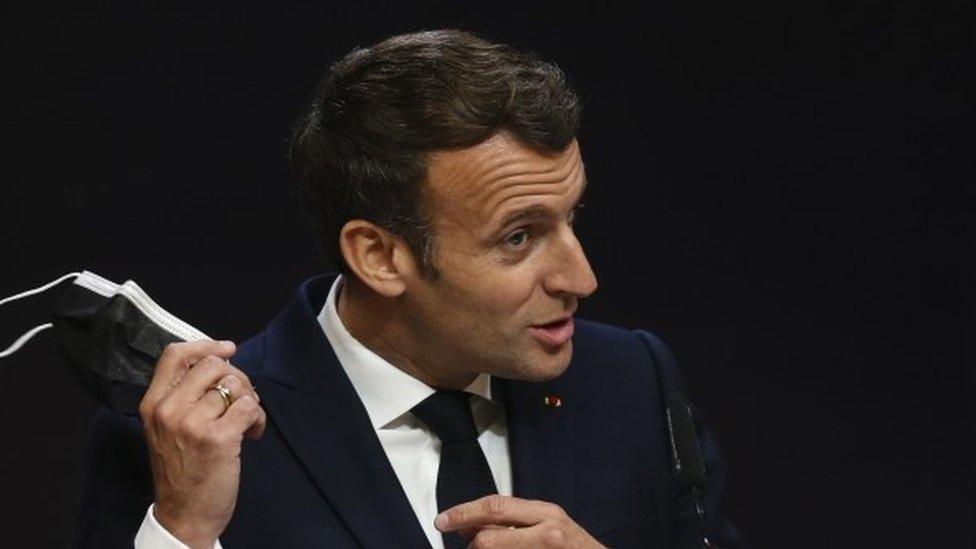France's Macron seeks joint defence force under EU reforms
- Published

Mr Macron wants a major overhaul and greater integration of the EU
The French president has called for a joint EU defence force as part of his vision for the future of the bloc.
Setting out a series of reforms, Emmanuel Macron proposed greater co-operation on security and the fight against terrorism.
He came to power in May promising to strengthen the eurozone and deepen EU integration ahead of Brexit.
But his plans face fresh hurdles after Sunday's German election with the rise of eurosceptic Alternative for Germany.
The nationalist AfD won its first seats in the German parliament, while Angela Merkel - a key ally of Mr Macron - was re-elected for a fourth term as chancellor amid falling support.
'Too weak, too slow'
In a major speech at the Sorbonne university in Paris, Mr Macron said he wanted the European Union to have "autonomous capacity for action" through a joint military force.
He gave few further details but said the force should complement, rather than replace, Nato's capabilities and aim to begin operations in about 2020.
He also called for a shared defence budget and common defence policy, and a European military training academy.
Several EU countries, as well as European Commission President Jean-Claude Juncker, have previously called for a common European army to face up to Russia and other threats. But the UK has warned the move could undermine Nato.
In his other key proposals, Mr Macron said the EU should:
Strengthen borders and protect the "sovereignty" of member states against uncontrolled migrant flows - speeding up asylum applications, setting up a central asylum office to hold background files, and helping countries where immigrants come from to stabilise their economies
Set up a single, EU-wide tax on financial transactions
Forge a common policy on sustainable development by harmonising subsidies for green technology and introducing a bloc-wide carbon tax
Make the Common Agricultural Policy more flexible and less bureaucratic
Set up a European agency to encourage "champions" in digital technology
Mr Macron acknowledged Europe's pitfalls but expressed conviction in the future of a reformed, post-Brexit EU.
"Europe as we know it is too weak, too slow and too inefficient," he said.
"But only Europe can give us the means to act on the world stage as we tackle the great challenges of the day."
Despite the Brexit vote, he said he believed the UK would find a "place in a simpler, reformed Europe" in "a couple of years".

Daring cynics to scoff
Analysis by Hugh Schofield, BBC News, Paris
On Europe, Emmanuel Macron is the anti-cynic. When he evokes his EU vision, he performs flights of lyricism that seem almost ethereal. All the while, he is daring the cynics to scoff. Go ahead, he is saying, call it unrealistic. But at least I have a dream. What are you offering?
It is his stock in trade, this vision thing. And if it has worked wonders up till now, it is because most people - when it comes to it - don't think of themselves as cynics. They do want to believe in an idealised, better France, and an idealised, better Europe.
But Mr Macron's danger is that by painting this new Europe in all its integrated glory, he is setting himself a challenge that is impossibly high.
You don't have to be a doubting Thomas to wonder whether transnational lists of MEPs will actually be ready for the 2019 EU elections; or whether the UK will one day re-join a rebooted, multi-speed EU (two of his ideas).
To which Macron, the wide-eyed visionary, would no doubt reply: yes, but if we all want it enough, who knows? It can happen.

The French president is pressing other EU leaders, including Germany's Mrs Merkel, to work with him.
However, the German chancellor is expected to try government with the Free Democratic Party (FDP), whose leader is an outspoken critic of Mr Macron's European agenda.
In his speech, the French leader reached out to Germany in particular, saying the two countries should aim to apply the same legal regulations to their companies.
He has already taken steps to mirror the German model with his controversial efforts to reform labour laws by allowing firms more flexibility in negotiating wages and conditions with employees.
One of his goals is to reduce unemployment in France from 9.5% to 7% in five years. However figures released on Tuesday showed that the jobless total had risen by 0.6% in the last month.
- Published25 September 2017

- Published29 August 2017

- Published11 May 2021
